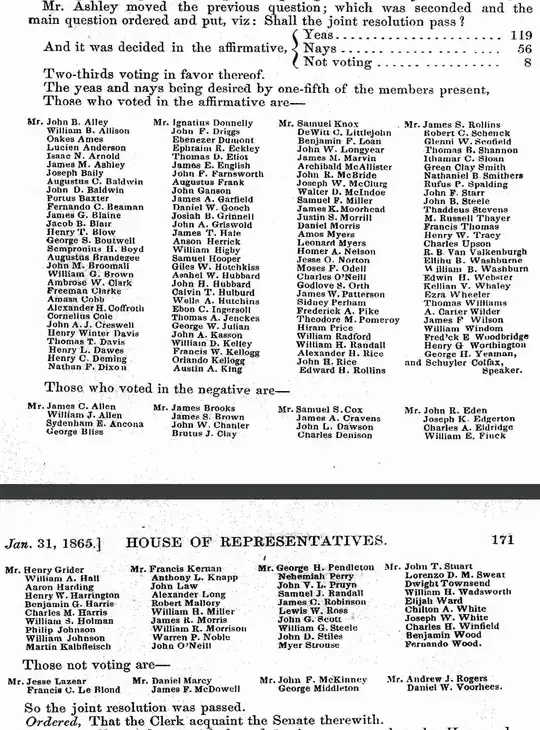I was reading the history of the 13th Amendment. After creating the Emancipation Proclamation, Abraham Lincoln realized that he would need to amend the Constitution to truly end slavery. His attempts to change the Constitution were ultimately successful, as the House passed the bill in January 1865 with a vote of 119–56.
That made me wonder are the 56 people who voted against the abolishment of slavery known in posterity? Are the ballots in Congress anonymous or is there the implicit part of voting that your name will be etched into infamy if your vote goes against public sentiment?
I wonder what exactly are the rules on anonymous voting in congress?
